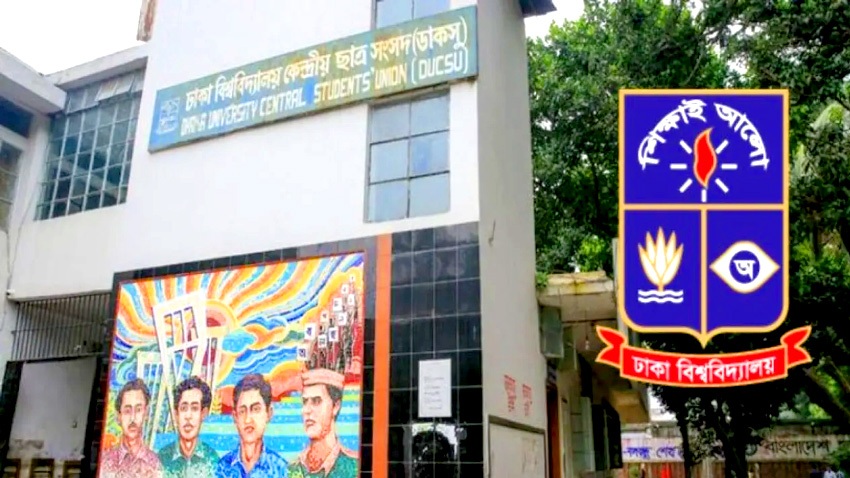DU Correspondent
Dhaka University (DU) faces its most competitive electoral showdown ever as approximately 1,500 candidates prepare to contest just 262 positions, creating an unprecedented 6:1 competition ratio that promises the fiercest student political battle in university history.
This September’s DUCSU and hall union elections will witness seven panels vying for control, including Bangladesh Jatiyotabadi Chattra Dal, Islami Chhatra Shibir, Bangladesh Ganotantrik Chhatra Sangsad, leftist groups and independent candidates.
With 39,932 registered voters deciding the outcome, participation levels have smashed all previous records.
“Many new parties are joining the race,” confirmed Professor Kazi Mohammad Mahbobor Rahman from university’s Political Science Department. “The electoral environment is good and there’s growing belief that candidates have fair chances to win.”
Students will directly elect representatives to 28 DUCSU posts whilst 234 hall representatives across 18 residential halls complete the 262 available positions.
The staggering candidate-to-seat ratio reflects unprecedented political engagement sweeping through campus dormitories, tea stalls and lecture halls.
Electoral machinery accelerated rapidly following 29 July schedule announcement. Draft voter lists published July 30 revealed the massive 39,932 voter registration, with objections accepted until 6 August.
Final lists emerge 11 August before 9 September polling day.
Administrative staff report overwhelming response as concerned students flood election offices.
“Students whose names are missing from draft lists are coming to us,” explained Deputy Registrar Mojibur Rahman, describing guidance procedures for voter registration.
Despite nomination forms distributing from August 12, ambitious candidates have already launched digital campaigns on Facebook platforms like ‘Dhaka Bissobiddalay Shikkharti Sangsad-2’ groups. Video messages highlighting campus issues and electoral promises dominate social media discourse.
“We’re witnessing generational shift,” observed Professor Mahbob. “Young candidates naturally use Facebook to attract peers and gain support through new technologies.”


